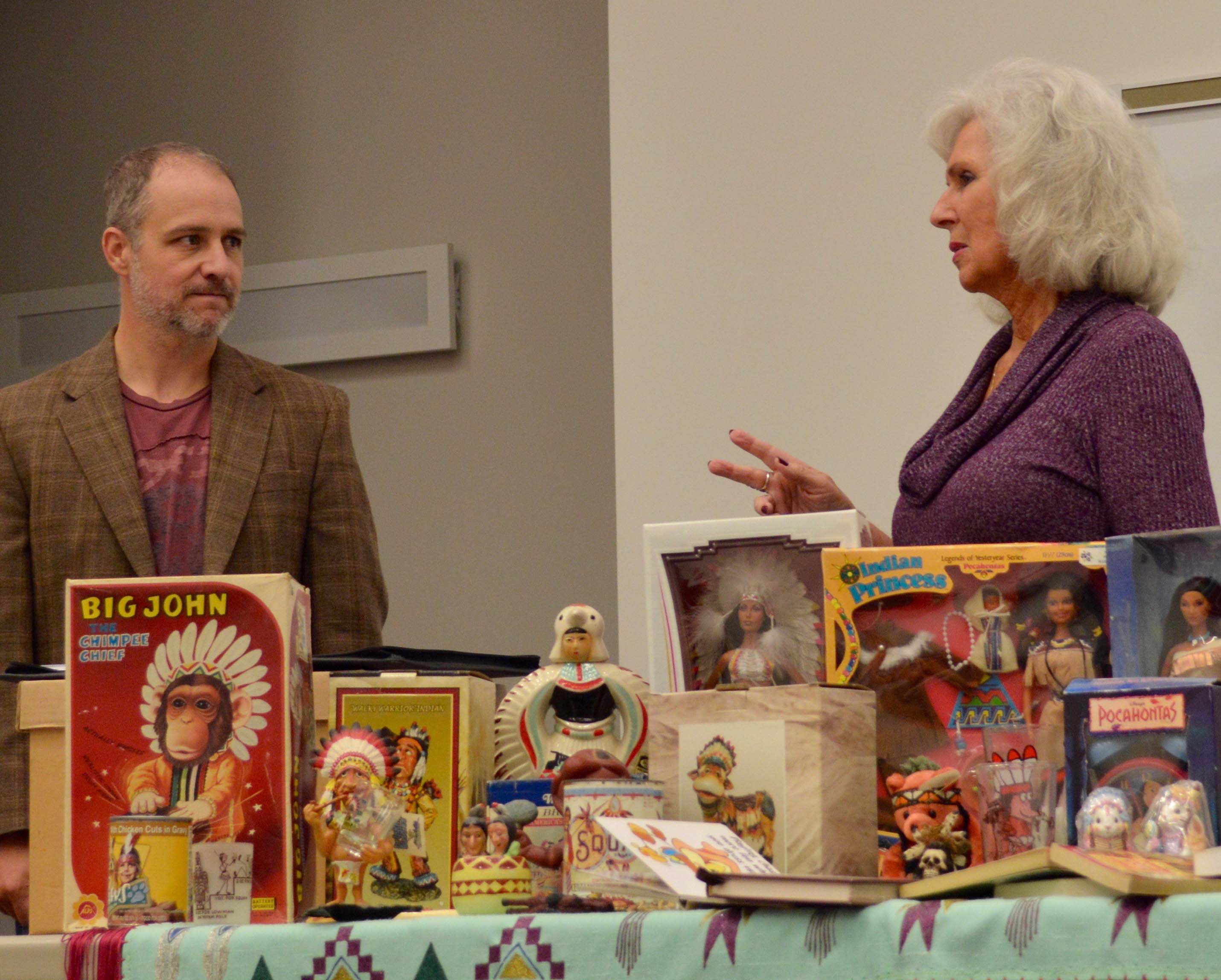Cultural awareness can change perspectives

Oct. 6, 2019
By Nicole Wright, NCTA News student writer
CURTIS, Neb. – A recent cultural arts program in diversity was an eye opener for college students.
Nancy Gillis of Walthill presented “Native American Stereotyping in Popular Culture,” a program sponsored by Humanities Nebraska at the Nebraska College of Technical Agriculture.
The presentation outlined the popular, and often unnoticed, stereotypes about Native Americans and their culture, said Professor Eric Reed, general education division chair.
“Most people don’t fully understand the full power of their biases,” said Reed who also chairs the NCTA Diversity Committee. “Ms. Gillis showed how Native Americans get stereotyped in ways that are simply false.”
According to Gillis, whether a stereotype is positive or negative, it makes a blanket assumption which assigns a certain set of characteristics to every person of a culture.
Gillis began her public program on October 2 by speaking in her native language and introducing herself in accordance with her Native American heritage.
She grew up in a household with four generations, including her grandmother who spoke Cherokee and still practiced traditional culture.
During her childhood years Gillis dealt with a lot of prejudices. She spoke of a sign in a gas station window which said, “No dogs or Indians allowed.”
While these prejudices are not as obvious today, many of them can still be found in movie plots, souvenirs, cartoons, and other items of popular culture, she noted.
“Most have been injurious to the perception of Native Americans,” Gillis said.
These prejudices are also perpetuated by unbalanced literature, written by those who have not researched the cultures which they are writing about.
Propaganda, or advertising for a certain point of view, portrays Natives in many restrictive and disparaging roles such as the “princess” or “squaw” view of female Native Americans, the “feral” view of children, and the “noble red man” or “wise elder” view of men. While some of these roles sound positive, they are uneducated, and disrespect Native culture, Gillis explained.
Gillis really opened the eyes of many students at NCTA. When asked how the presentation affected her view on stereotypes in popular culture.
Leah O’Connor of North Platte, first-year student of Veterinary Technology, was one of the NCTA Aggie students who said the program was an eye-opener.
“It kind of reinforced what I knew about stereotypes, especially surrounding Native Americans,” O’Connor said. “Language slurs she (Gillis) discussed really reminded me of how disrespectful society has been and can be.”
Contemporary images of Native Americans tend to sexualize and appropriate their culture for commercial gain. Those which do not sexualize tend to parody and insult the culture directly, Gillis said.
Some individuals have also falsely claimed Native American heritage for personal, commercial, or political gain. This leads to more misrepresentation of Native Americans in America and around the globe. Gillis emphasized that members of society are responsible for changing the image of Native Americans in popular culture for years to come.
Gillis is a member of the speaker’s bureau with Humanities Nebraska which provides speakers to not-for-profit organizations and educational institutions such as the Nebraska College of Technical Agriculture.
Her biography from Humanities Nebraska says: Of Cherokee and Choctaw heritage, Gillis moved to Nebraska in 1987 to work with the Winnebago people for the Reformed Church in America and has served as their delegate to its Native American Council and the Commission for Race and Ethnicity.
Since 1992 she has served as faculty at Wayne State College, Northeast Community College, Nebraska Indian Community College, and Little Priest Tribal College teaching Native American History and Cultures, U.S. History, World History, Anthropology and Sociology.
Humanities Nebraska provides major funding for this program, and receives support from the Nebraska Cultural Endowment, the Nebraska State Legislature and the National Endowment for the Humanities.
Editor’s Note: NCTA student writer Nicole Wright is a first-year veterinary technology major from Leroy, Kansas. Sophie Nutter is an NCTA student photographer from the Axtell area and attended Wilcox-Hildreth High School.